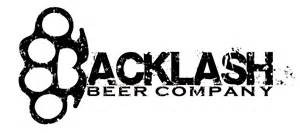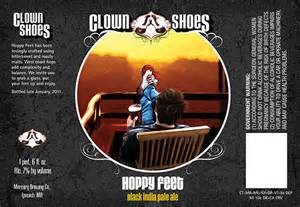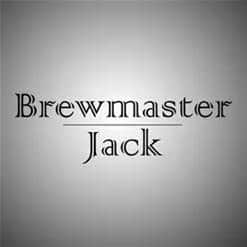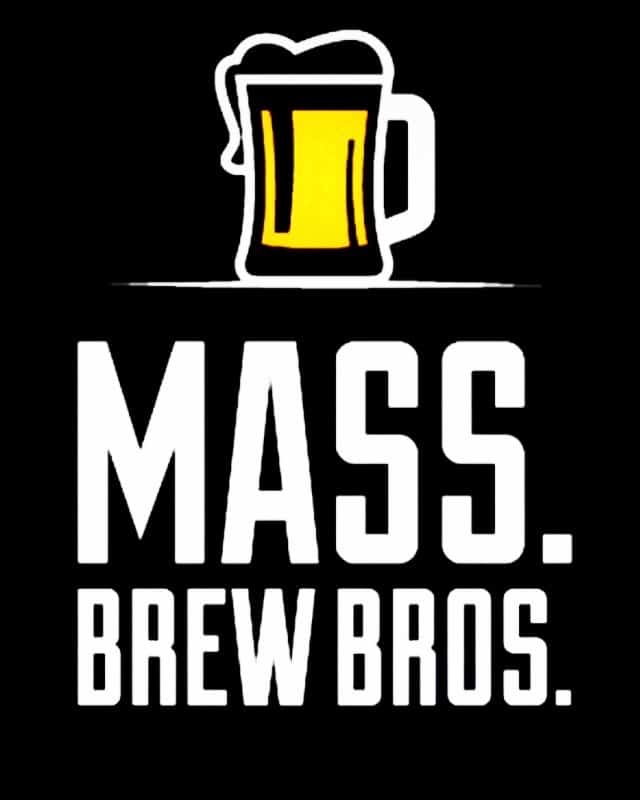What Exactly is Contract Brewing Anyway?
Go ahead, admit it: you’re not sure what the term “contract brewing” really means. It’s okay, you’re in good company. Truth be told, neither did we, up until a couple of years ago when our craft beer adventure took off. Think of it this way: ever wonder where some of your favorite craft beer is made? Not Harpoon or Berkshire, but some of the more obscure brands? More than likely, they’re contract brewed, meaning they’re made at someone else’s brewery. The practice has been around since the 1980s, with Sam Adams being the first and most prominent Bay State brewer to utilize it.* Since then, it’s become more widespread. These days, the number of commercial beer makers in Massachusetts contract brewing might surprise you, and like the rest of the craft beer movement, its popularity is on the rise.

Backlash, one of the state’s more established contract brewers, is planning to build its own brewery in the near future.
We estimate that nearly a quarter of the state’s brewers make use of contract brewing to some degree. More than 20 of them brew all their beer under contract, though several are planning to open their own breweries in the future. Close to a dozen more, brick and mortar breweries already at full capacity, are contract brewing to keep up with demand. “It seems like more and more brands are throwing their hat into the ring and utilizing the contract model to get their brand to market,” observed Backlash Beer co-founder Heider Pimentel in an interview with Brewbound a few years ago. But as any veteran brewer around during the craft beer bubble of the late 1990s will tell you, It wasn’t always that way.
Why “Contract Brewing” Are No Longer Dirty Words in the Craft Beer World
Contract brewing was widely considered a dirty word within the brewing industry from 1996 to 2002, a shakeout period many would describe as a bubble. At that time the market was flooded with what some considered to be inferior beer. Using it as an opportunity to squash its competition, an Anheuser-Busch rep made an appearance on Dateline in which he called for truth in advertising and pointed the finger at Boston Beer Company. He pointed out that the company’s iconic Sam Adams brand wasn’t brewed at its Jamaica Plain brewery, but was actually contract brewed somewhere else (Pennsylvania). “Between the bad PR and the bad beer many upstart breweries were churning out,” wrote Adrienne So in a piece for Slate Magazine, “the industry suffered through a slump and the words contract brewing were usually followed by a sneer.”

Since debuting its first beer seven years ago, Clown Shoes has grown to be one of the largest contract brewers in the U.S., producing more than 12,000 barrels last year.
Whatever contempt there was for craft beer, especially if it was contract brewed, didn’t last long. Just a few years after Rob Martin bought the Ipswich Ale Brewery in 1999 and renamed it Mercury Brewing (he didn’t yet own the rights to the Ipswich brand and actually contract brewed it for them for several years), established and prospective breweries began approaching him to inquire about brewing their beer at his facility. Some, like Cisco on Nantucket (they’ve since entered into a partnership with Craft Brew Alliance) or Off Shore Ale on Martha’s Vineyard, were looking for wider distribution. Others, such as Clown Shoes Beer founder Gregg Berman, were looking to start their own brand. “He had an idea for a hoppy black IPA (Hoppy Feet) and asked if we could help him develop a recipe,” recalled Dan Lipke, a Mercury brewer at the time. The two collaborated for several years until Lipke eventually left Mercury to become the full-time brewer for Clown Shoes, now one of the most successful contract brewers in the country.
It was around that same time that Chris Lohring was starting his new brewery, Notch. “Session beer wasn’t a thing yet in the U.S., so trying to open a brick and mortar brewery was too big of a risk,” explained Lohring, who still contract brews much of his beer. “I wasn’t even sure I’d last a month.” Like it had for Clown Shoes, however, demand for Notch beer took off, so much so that Lohring, the first U.S. brewer to focus exclusively on session beer, was able to open his own brewery and beer hall earlier this year in Salem.
The boom in craft beer sales wasn’t just limited to new brands like Notch or Clown Shoes. Established brewers were also growing, and often wrestling with how to increase production. More often than not, the contract model won out over expensive or impractical expansion alternatives. Cambridge Brewing Company (CBC), already selling all the beer it could make at its popular brew pub, started hands-on partnerships with both Mercury, for bottles, and Wachusett, for cans. Much like Lohring, or Jeff Leiter of Slumbrew (strictly a contract brewer at the start), CBC brewmaster Will Meyers was involved in every step of the process. “We never just order a batch of beer,” he explained, “we’re there on every brew day.”

One of the state’s most popular conrtract brands, the Brewmaster Jack name is an ode to the brewer’s great grandfather, who brewed during prohibition.
Finding a place on brew day wasn’t always easy for small-scale contract brewers trying to break into the brewing business. Self proclaimed gypsy brewer Portico caught its break when Waltham’s now-defunct Watch City agreed to let them rent time on their smaller 20-barrel system. They’ve since moved to Mercury and brew on a larger scale. “We were lucky that Watch City was not only open to the idea, but also had the capacity,” explained founders Alex Zielke and Alex Rabe.
Perhaps no brewery has provided more opportunities for would-be brewers than Paper City Brewery in Holyoke. They’ve mentored some of the state’s most popular contract brands, including Backlash and Brewmaster Jack. “They were one of the few options for an operation like mine that needed to brew small batches at an affordable price,” recalls Tyler Guilmette, the brewmaster behind Brewmaster Jack. He approached Paper City after perfecting his recipes in the kitchen of his Northampton apartment. “There weren’t many places taking contract brewers back then (his first commercial batch hit liquor store shelves in February of 2012), they were good guys.”
The Stories Behind Your Favorite Massachusetts Contract Beer Brands
Take a close look at craft beer in the Commonwealth and you’ll find the industry is full of good guys, many whose motivation is as much about passion as it is about paycheck. Tommy Pluta and Mike Perreault were home brewers who worked in the golf industry when they came up with the idea for Swing Oil Beer, a session ale meant to be enjoyed on the links. After debuting their golf-centric brand at the 19th Hole of a handful of Western Mass. courses, they’ve steadily extended their reach to sports venues, restaurants, and packies in more than half the state. “We’ve seen slow but steady growth,” shared Pluta, “but it’s been hard work.”
Growing a brand isn’t easy. Just ask Eric Dinarello and Mike Bonacquisti, who purchased 3 Beards Beer Company from their friends and founders six months ago. The twenty somethings don’t have epic beards, but they do have high hopes for the future of the brand, like partnering with undiscovered brewers to create new beers and expanding distribution into greater Boston. Both 3 Beards and Swing Oil acknowledge that it’s challenging to grow a brand without the luxury of an on-site taproom where patrons can make a personal connection. Selling directly to the craft beer consumer, and saving the 30% or more typically taken by distributors, doesn’t hurt the bottom line either.

Down The Road Brewery is one of many in the Bay State transitioning from contract to traditional brick and mortar brewery.
A recent story on the “Own Premise Revolution” by Bryan Roth pointed out that 7% of craft beer sales now occur at the breweries that make the beer, a nearly 200% increase over the last ten years. It’s a trend that hasn’t gone unnoticed by Brewmaster Brewing Services in Williamsburg, formerly owned by Opa Opa Brewing. They plan to introduce a taproom of sorts, where brewery visitors can purchase fresh takeaway beer and sample special releases from the brewers they contract with. Dorchester Brewing Company (DBC) is currently doing just that, at their state-of-the-art facility opened a few months ago. Billed as a “partner brewery,” their luxurious taproom is available to partners for beer releases and special events. Co-founder and head brewer Todd Charbonneau, formerly at Harpoon, contract brewed Banner Beer for the last three years (it’s now on hiatus). He plans to keep the 20-line tap system flowing with a wide array of house beers and partner brewer offerings.
One of those offerings is an IPA from Bryan Barry and Jim Hodgdon, Hingham restauranteurs and home brewers who contract brew at Mercury but have started canning at DBC. In summer of 2014, after small-scale success with their IPA, they launched Entitled Beer, inspired by their belief that “everyone is entitled to a good beer.” Like many of the contract brands we heard from, initially there were a few who wrote them off because they were contract beer. But many of them changed their minds according to Barry: “beer drinkers have become more educated in recent years. They appreciate a good product when they taste it, regardless of where it’s brewed.” Barry and Hodgdon dream of a future taproom where they can share a pint with appreciative patrons, but the right opportunity hasn’t come up yet.
Phil Oliveira has also been waiting for his opportunity, but for him, the future is now. After schlepping cases of his beer around greater Boston while trying to break into the market as a self distributing contract brewer (he actually gave away half of his first batch for free), he’s now just months from opening his own brewery. “There were lots of unreturned phone calls that first year,” remembers the Dorchester native who grew up on Percival Street, the namesake for his brewery, Percival Beer Company. Oliveira wanted to open his self-funded nano brewery near his own neighborhood, but “it just wasn’t financially possible,” he explained. Instead, he’ll open in Norwood this spring, where his next step will be to connect with consumers.
Like Oliveira, Ray Berry wanted to maintain autonomy of his startup brewery, While Lion, every step of the way. “The idea was always to transition from contract to brick and mortar,” the founder and Springfield resident claims, adding “we’ve been working aggressively to find a space downtown for a brewery and taproom with canning and kegging on site.” Cautiously optimistic that it will happen within the first half of 2017, Berry has identified several properties and is already in negotiations with one. In the meantime, White Lion continues to grow (their goal for 2017 is to produce 3,000-plus barrels) and plans to expand its distribution into Eastern Mass..

Medford Brewing, who released its first beer earlier this month, is the most recent contract brewer to launch in Massachusetts.
Another fast-growing contract brewer is Farmer Willie’s Alcoholic Ginger Beer. Crafted in a Cape Cod kitchen, it debuted in 2015 at the Provincetown farmer’s market where the ginger with soul quickly sold out. Company founders, two college kids (Nico Enriquez and Max Easton) and a goat farmer (Willie Fenichel), initially contract brewed it at Downeast Cider in Charlestown before outgrowing the space and moving production to the Foolproof Brewery in Pawtucket, RI. As for it’s future plans, including its own brewery on the Cape some day, Enriquez shared: “we’re working on a permanent home, but that’s all I can say at the moment.”
Regardless of what happens with Farmer Willie’s, the Cape will get another brick and mortar brewery next summer when established contract brewer Naukabout opens its own facility in Mashpee, Just a few miles from the fairgrounds where their successful music festival (which eventually led to their beer company) flourished, they hope to recreate that same do what you love vibe at their brewery and taproom overlooking Wakeby Lake. Co-founders Peter Murner, Mark Germani and Brook Conley envision a hybrid brewery model, where their current contract and distribution arrangement co-exists with the new taproom that allows visitors enjoy freshly brewed on-premise beer.
The Future of Contract Brewing
Like the craft beer industry as a whole, the future of contract brewing is hard to predict. Consider the following: (1) demand for craft beer is likely to see continued growth, (2) most U.S. breweries (75%) are producing only 1,000 barrels a year or less, (3) the barriers for entry into the craft beer market have never been lower, (4) contract brewers face shrinking capacity (thus longer wait times for production) at existing breweries, (5) 60% of craft beer drinkers polled say they’re more likely to purchase a brand after having visited the brewery.
Despite these trends, not every contract brand is ready to abandon their current business model, especially if they’re still growing. “We’re not looking to become a brick and mortar brewery,” says Bryan Doran, Director of Sales and Development for Clown Shoes. “That said, we’re not ruling out the current taproom model. We recognize the need for direct contact with consumers, it’s something we’re working on.”
As challenging as it may be for contract brands to navigate the current market, the historically low barriers for entering that market should ensure that more aspiring beer makers will try the waters. As competition stiffens, there should be plenty of good beer for consumers to enjoy.
* This story concerns contract brewing in the craft beer era. We did not research contract brewing prior to the 1980s.
Additional Massachusetts brands that contract brew all or some of their beer include:
Bad Martha, Battle Road, Bay State, Brazo Fuerte, Glass Bottom, Hopster’s, Landmark, Larboard, Merrimac Brewing, Mighty Squirrel, Newburyport, Old Planters, Opa Opa, Wash Ashore, Wicked Pissa, and Wormtown.




We just learned that another Massachusetts contract brewer, Mighty Squirrel, is thinking about building a brewery. Here’s a link to the story: http://bostinno.streetwise.co/2016/10/26/the-1st-protein-beer-mighty-squirrel-just-raised-1-8m-may-build-a-brewery/?platform=hootsuite
We also recently learned that contract brand Wicked Pissa is no longer being produced by its contract brewer, but we have been unable to confirm with its owner, Power Marketing USA, that they have officially ceased production.